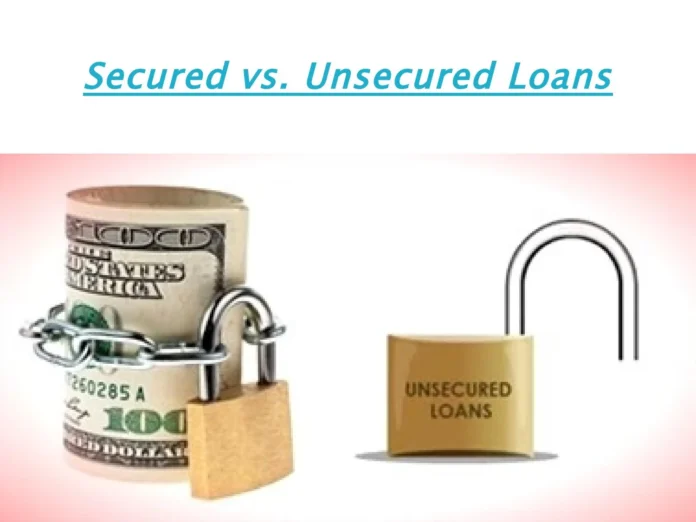Secured vs. Unsecured Loans: A Comprehensive Guide
Introduction
When seeking a loan, you’ll often encounter two primary categories: secured and unsecured. Each type has its own advantages and disadvantages, making it essential to understand the differences before making a decision. This guide will delve into the pros and cons of both secured and unsecured loans, helping you choose the best option for your financial needs.
Secured Loans
Secured loans are backed by collateral, which is an asset that the lender can seize if you default on the loan. Common types of collateral include homes,
cars, and other valuable possessions.
2.ilikeninja
Pros of Secured Loans:
- Lower Interest Rates: Secured loans typically have lower interest rates compared to unsecured loans due to the reduced risk for the lender.
- Higher Loan Amounts: You can often borrow larger sums with secured loans.
- Longer Repayment Terms: Secured loans may offer more flexible repayment terms, allowing you to spread out payments over a longer period.
Cons of Secured Loans:
- Risk of Collateral Loss: If you default on the loan, the lender can seize your collateral, potentially resulting in significant financial loss.
- Limited Flexibility: Secured loans are often tied to specific purposes, such as buying a home or car.
Unsecured Loans
Unsecured loans are not backed by collateral. They are based solely on your creditworthiness. Common types of unsecured loans include credit cards, personal loans, and student loans.
Pros of Unsecured Loans:
- Quick Approval: Unsecured loans can often be approved more quickly than secured loans.
- Flexibility: You can use unsecured loans for various purposes, such as debt consolidation, medical expenses, or home improvements.
- No Collateral Risk: You don’t risk losing your assets if you default on an unsecured loan.
Cons of Unsecured Loans:
- Higher Interest Rates: Unsecured loans generally have higher interest rates than secured loans due to the increased risk for the lender.
- Lower Loan Amounts: You may be able to borrow smaller amounts with unsecured loans.
- Stricter Credit Requirements: Lenders often have stricter credit requirements for unsecured loans.
Choosing the Right Loan
The best type of loan for you depends on several factors, including your financial situation, credit score, and the purpose of the loan. Consider the following questions:
- What is the loan for? Some loans are specifically designed for certain purposes, such as home mortgages or auto loans.
- How much do you need to borrow? The amount you need to borrow will influence your options.
- What is your credit score? A higher credit score can improve your chances of getting approved for a loan and securing a lower interest rate.
- Can you afford to risk collateral? If you’re not comfortable with the risk of losing your collateral, an unsecured loan may be a better choice.
By carefully evaluating these factors and considering the pros and cons of secured and unsecured loans, you can make an informed decision and select the loan that best suits your financial needs.Sources and related content
Introducing Sources :
For App review And Website Related Info You Can Refer To :
Loans And Credit Cards :

